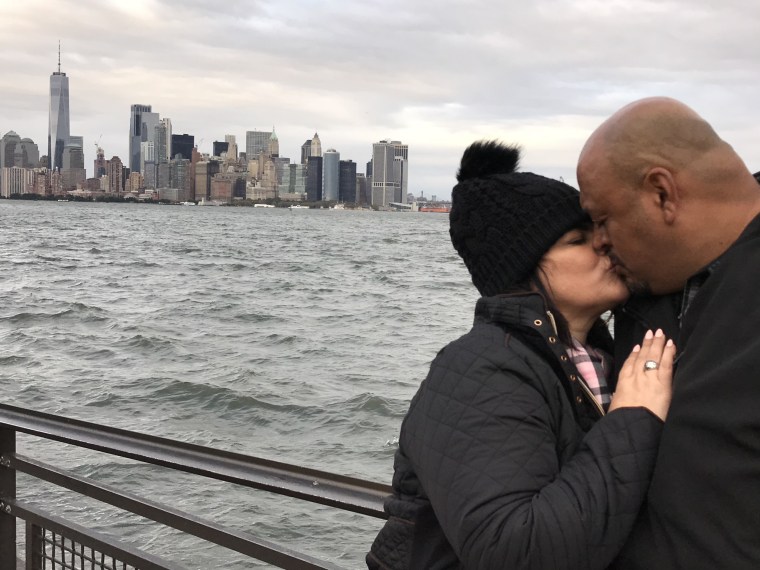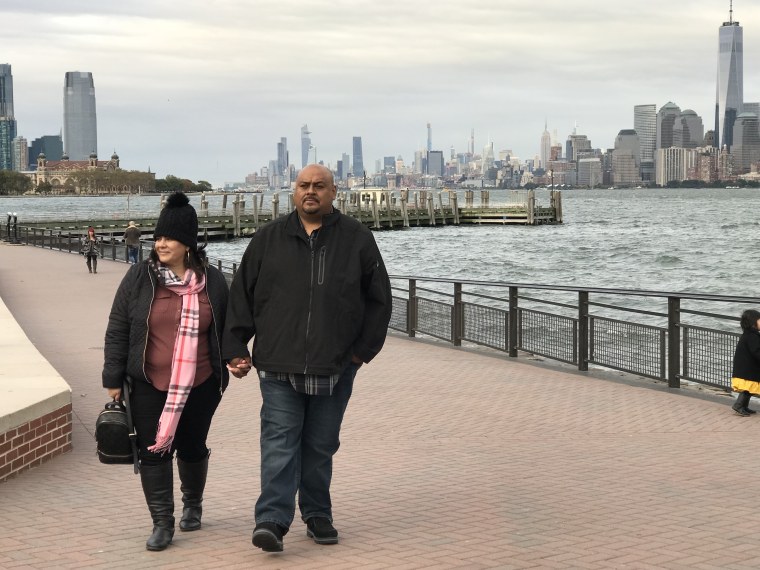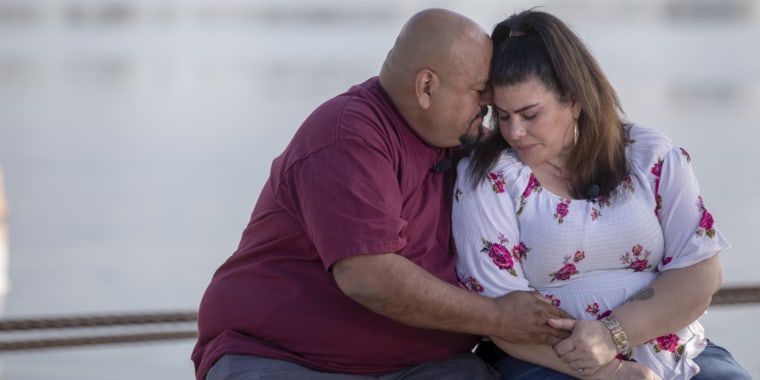At 45, Hanna Olivas doesn’t want to die, but she wants the right to end her life on her terms when the time comes.
With perhaps one year left to live, the mother and grandmother, whose story was first reported in People, is spending her remaining time urging her home state of Nevada to allow doctors to prescribe life-ending medications for terminally ill patients like her.
She’s also making plans to move to California, where doctor-assisted death is legal.
“I don’t want to die in a hospital and I don’t want to die in a hospice. I lost two family members that way and it’s horrible. There’s no comfort or security or peace,” Olivas told TODAY.
“I envision being surrounded by my family somewhere near the water where I can hear the ocean or see it as I’m falling asleep, spending those last moments with the ones that I love most in the world.”
“I’d be by her side until the very end,” added her husband Jerry Olivas, 47. “It’s not an easy decision, it’s not easy to live with, it’s something I struggle with every day but I understand her position.”
The couple has been advocating for Nevada lawmakers to pass a “Death with Dignity” bill, which failed to advance this spring. The Olivas said it should be an option for those who want it, echoing the sentiments of Brittany Maynard, who moved to Oregon to be able to end her own life in 2014 before her terminal brain cancer ran its course.
Troubling symptoms
Hanna, a make-up artist who lives in Las Vegas, was diagnosed multiple myeloma — a blood cancer — in 2017. It was grim news during a year when the family had already suffered a blow: Hanna had been expecting a child, but lost the baby eight months into her pregnancy.
She noticed troubling symptoms soon after: pain in her bones, unexplainable fatigue that persisted no matter how much she slept, shortness of breath, “super bad” night sweats and hair loss.
At first, doctors were puzzled by her symptoms, suspecting everything from lupus to a hereditary blood disorder. It took experts from the Mayo Clinic and UCLA, plus a local doctor, to finally diagnose the blood cancer. Hanna didn’t fit the profile since typical multiple myeloma patients are over 65, African-American and male.
“We’ve seen so many doctors over the last two years — I can’t even tell you how many times my blood has been drawn and how many tests I’ve had,” she recalled.
Hanna’s treatment options were chemotherapy and a stem cell transplant. But the chemo ravaged her liver and kidneys to the point where she had to stop after five rounds. A stem cell transplant was deemed too risky: “My whole body just went berserk all at one time,” Hanna said.

With doctors telling her there was no cure, she began thinking about ending her life before the final stages of the disease.
“Multiple myeloma comes with a very lengthy gruesome painful death. It basically sucks the life out of you. I’ve seen it first-hand,” Hanna said, noting she’s losing a friend to the illness right now.
“You’re on opioids for the pain. You’re so out of it that you can’t even enjoy your quality of life with your family and I don’t want to be like that when that time comes…. It’s my body, my life, my terms.”
Planning a move to California
She and her husband had a lengthy conversation about it, Jerry recalled.
“It’s heartbreaking, but I think at the end of the day, it’s a matter of choice. I support her decision. I’m not thrilled with it, but my wife is her own person,” he said.
A doctor recently told Hanna she has about a year left, she said. She didn’t accept that prognosis and hoped holistic treatments would help her continue to fight.

But when time runs out, Hanna plans to move to California where the End of Life Option Act allows an adult who has six months or less to live to get a prescription for a life-ending drug. Colorado, Hawaii, Maine, Montana, New Jersey, Oregon, Vermont, Washington state and Washington. D.C. also allow medical aid in dying, according to Compassion & Choices, a nonprofit that has been publicizing the Olivas’ story.
“You take the medicine and you fall asleep peacefully,” Hanna said.
She resented having to move to another state to be able to make that choice, noting it would be a “huge hardship” for her and her husband to leave their home and relocate. So she continues to fight for her home state to offer the option of doctor-assisted death.
“If Nevada were to legalize it, it would be a huge victory for a lot of terminal patients,” Hanna said.
She also had a message for other patients with her blood cancer: “To all my fellow multiple myeloma warriors: Don’t give up the fight. We rise up for a cure together.”

